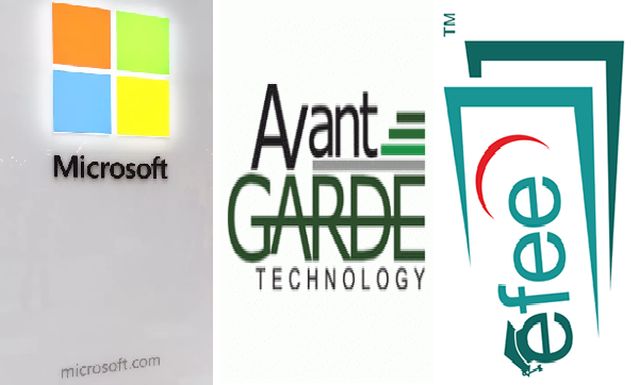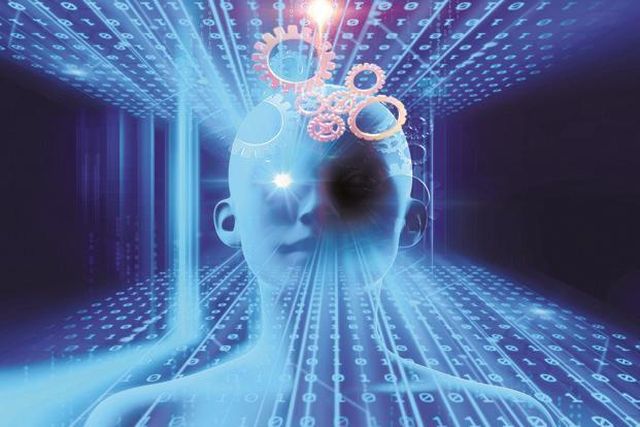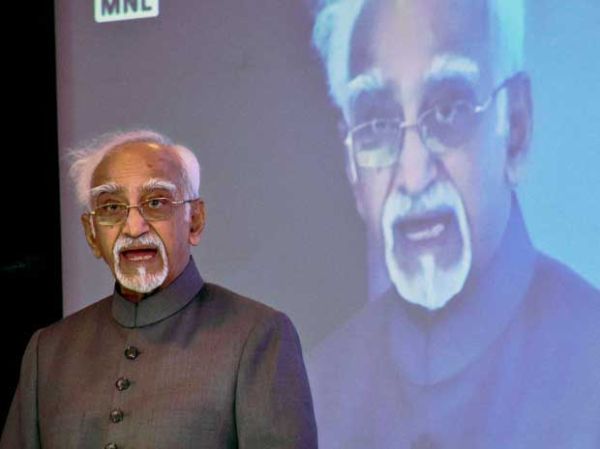
by Editor | May 25, 2021 | News
 New Delhi : Around 4,000 Indian students appeared for interview on Wednesday to secure the American visa to pursue higher education in the United States.
New Delhi : Around 4,000 Indian students appeared for interview on Wednesday to secure the American visa to pursue higher education in the United States.
The interview was conducted at the US embassy here and the Consulates in Chennai, Hyderabad, Kolkata and Mumbai.
The US Mission in India organises Student Visa Day every year to celebrate educational ties with India.
In 2017, more than 186,000 Indian students were enrolled in the US institutions of higher education, double the number from a decade ago and a 12 per cent increase from the year before, the embassy told media persons here.
“India is the second leading place of origin for students coming to the United States, with Indians comprising over 17 per cent of the total international students in the country,” Deputy Chief of Mission (DCM) MaryKay Carlson said.
“Today (Wednesday) marks US Mission India’s fourth annual Student Visa Day, an event that celebrates higher education ties between India and the US,” Carlson said.
She said the day is also dedicated to helping qualified Indian students prepare for their education in the United States.
—IANS

by Editor | May 25, 2021 | Corporate, Corporate Buzz, Entrepreneurship, Markets, News, Startup Basics, Technology
 New Delhi : Three IT majors – Microsoft, Tech Avant-Garde and Efee Online – have come together to help Kashmiri students to make up for their academic losses due to frequent shutdowns and curfews in the insurgency-ravaged state.
New Delhi : Three IT majors – Microsoft, Tech Avant-Garde and Efee Online – have come together to help Kashmiri students to make up for their academic losses due to frequent shutdowns and curfews in the insurgency-ravaged state.
The three firms have partnered with the Private Schools Association of Kashmir (PSAK) in starting an online education system in Jammu and Kashmir.
“PSAK is partnering with ‘Tech Avant-Garde, Microsoft and Efee online companies to bring Information Technology (IT) which is going to permit solutions to the education system especially during the frequent closure of education institutes of Kashmir,” PSAK head G.N. Var said in a statement.
Microsoft’s Aspire School Program Suite (MASP Pro) will be used to equip schools with innovative learning solutions and technology. This programme combines the benefits of Microsoft’s technology and e-payment solutions from Efee Online to empower teachers and students to be future-ready.
“This is an integrated learning online system in which a student will be given a software, ‘Lycee’ worth Rs 25,000 free with MASP Pro,” said Ali Sait, CEO, Tech Avant-Garde.
“The teachers will be given a device by which they will remain connected with the students especially during the closure of internet and education institutes.”
He said the service was started in the Kashmir Valley first because “we want Kashmir to become a headquarters of the system” that will transform the education in India.
The PSAK has urged the government not to snap the internet services and appealed for special internet service for the education system.
Var said restrictions, curfews, violent situations had become part of day to day life in the valley.
“We are unable to provide quality education to students as our schools get shut even at a small pretext. At times, we cannot even operate buses due to fear of violence. We are living in a conflict zone that we cannot help. But what we are trying to do is to isolate the education sector in a way that it remains largely unaffected.”
—IANS

by Editor | May 25, 2021 | Opinions
 By Anil K. Rajvanshi,
By Anil K. Rajvanshi,
Quite a number of years ago, I was invited to give a major lecture at my alma mater IIT-Kanpur (IIT-K). My lecture was an inspirational one where I told the students how they can, through their technological training, help in nation-building and in the process, achieve happiness. After my lecture a group of students wanted to discuss with me some issues on agriculture (an area which I had stressed in my lecture).
So, at a Cafe Coffee Day outlet on the campus, some of them said I stressed too much on idealism and the country. They said corruption is a part of life and they can factor that in their enterprise as increased service cost. Their cynical and street-wise behaviour shocked and bothered me tremendously and I felt that they had no empathy or honesty and were justifying their materialistic behaviour. One of them went so far as to tell me that he was purposely failing in his B.Tech so that he can stay for much longer time in IIT-K and use its facilities for running his business in Punjab.
I also felt dejected at what we, as a society, have done to raise this type of young generation which has no ethics or moral values and everything is based on money.
Since then, I have interacted with hundreds of students all over India and any time when I ask them to help in our NGO and do some work for social enterprise their first reaction is about the packet they will get. What work will they do is never in their field of vision or something that they want to discuss.
Yet, it is not the students’ fault. I feel they are smart and want to do something meaningful in their lives. It is the fault of the broken education system, poor role models and society’s pressures to make money at any cost that make them behave like that.
Around 30 per cent of India’s youth are neither employed nor going to school. Thus, they are easy prey to social evils, and rapes, riots, burglaries or just general hooliganism are carried out by most of these youths. They are almost like ticking social time bombs since they have bottled up frustration and anger.
The lot of the educated ones is no better than that of these unemployed youth. They have all learned to pass exams with very few skills and hands-on experience and thus, are unfit to work. A generally quoted figure that only 7-12 per cent of engineering graduates are fit to be employed could also be applicable to most of the other educational streams.
Thus doctors, engineers, commerce and legal graduates — to name just a few — are not fit to do their jobs after graduation and have to be trained at the workplace for many years before they become practising professionals. The amount of time and money wasted in training these fresh graduates is tremendous and is a drain on the country’s resources.
But more than simply learning some subjects and passing exams, what is not taught either in schools or in colleges is the ethics of work and how to become a good human being and a good citizen.
Once the qualities of a good human being and ethics of work are inculcated, one can work in any environment and learn new things. The education system theoretically should prepare a student for taking up challenges — an important part of ethics of work. But it does not do so and what the students learn is simply passing exams with questions given in the question papers which are as removed from reality as possible.
To be a good human being and have ethics of work (both are related to each other) should be taught right from school onwards. In every course, there should be a short section on ethics of work. If all course work and books have examples of ethics of work of great people then slowly but surely it will start soaking up in the brain of impressionable youngsters.
It is also possible that what the students learn in school is unlearnt during their interaction with family members and surroundings. Yet we must persist in our endeavour to teach them ethics and good behaviour. This is a long learning process and will take time to infiltrate society since these youngsters are the future of our country.
In many institutes and organisations (both government and private) I have seen many examples of scientists and engineers employed by them try to “screw up” the system and quite a few also brag about how they hoodwinked their superiors and hardly did any work. Besides not doing work, the biggest tragedy is when they fudge or falsify experimental data. They seem to have no qualms in doing it because they have only been trained to pass exams by hook or by crook.
I think one of the ways in which this passing of exams mentality can be changed is that in all the school and college curricula, more focus should be put on carrying out activities in various courses and fields and much less on passing exams. Open book exams, many more marks for project activities and the like will help in this process.
When there is too much emphasis on rote learning and passing objective type tests then the elements of cheating, corruption and general thievery creep in. This mentality is then carried over in other aspects of life.
So the most important thing that youngsters should be taught in schools and colleges is ethics of work and how to become good human beings. This will reduce greed, help them have a perspective in life and can ultimately help in making India a great and happy nation.
(Anil Rajvanshi is the Director, Nimbkar Agricultural Research Institute in Maharashtra. The views expressed are personal. He can be contacted at anilrajvanshi@gmail.com )
—IANS

by Editor | May 25, 2021 | Business, Corporate, Corporate Buzz, Corporate Governance, Markets, Medium Enterprise, SMEs, Technology
 By Nishant Arora,
By Nishant Arora,
Seattle (Washington) : While the Artificial Intelligence (AI) technology is making its presence felt across the spectrum globally, India needs to prioritise AI-based predictive analysis to improve outcomes in three core areas — agriculture, healthcare and education, a top Microsoft executive has emphasised.
The initial results in India are promising and if deployed at big scale, AI-based models can help farmers, doctors and educators keep building success stories, Joseph Sirosh, Corporate Vice President of Cloud AI Platform at Microsoft, told IANS here.
“For example, AI can help us foresee signs of a student being at risk of dropping out. We have done first such experiment in Andhra Pradesh involving thousands of students,” Sirosh informed.
In 2017, the Andhra Pradesh government expanded the rollout of the experiment to all 13 districts in the state.
In Visakhapatnam district, an application powered by Azure Cloud Machine Learning (ML) processed the data pertaining to all students — based on parameters such as gender, socio-economic demographics, academic performance, school infrastructure and teacher skills — to find predictive patterns.
The results showed that some of the factors leading to students dropping out were insufficient furniture, inadequate toilet infrastructure, etc.
Based on these results, the state government identified about 19,500 probable dropouts from government schools in Visakhapatnam district in the next academic year (2018-19).
“Not just India, AI-based predictive analysis has also helped Tacoma School District here in Washington state improve graduation rate from under 60 per cent to over 83 per cent by managing dropouts,” Sirosh noted.
When it comes to agriculture, Microsoft, in collaboration with the non-profit International Crop Research Institute for the Semi-Arid Tropics (ICRISAT), has developed an AI-sowing app for farmers in India.
The tech giant is using AI and historic weather data to predict the best time for sowing seeds and other stages of the farming process, and pass on that information to farmers via SMS.
“We have done some amazing work, like informing farmers when to sow crops, what is the best time to plant crops during the year, etc. The result is 30 per cent more yield,” Sirosh told IANS.
The farmers do not need to install any sensors in their fields or incur any capital expenditure. All they need is a mobile phone capable of receiving text messages.
To determine the optimal sowing period, the Moisture Adequacy Index (MAI) is calculated. MAI is the standardised measure used for assessing the degree of adequacy of rainfall and soil moisture to meet the potential water requirement of crops.
The data then is downscaled to build predictability and guide farmers to pick the ideal sowing week.
According to Microsoft, ICRISAT has scaled sowing insights in 2018 to 4,000 farmers across Andhra Pradesh and Karnataka for the Kharif crop cycle (rainy season).
“We have made AI-based applications very simple for common people to comprehend. They don’t need to be tech-sophisticated. We have simplified the technology for the end-users,” Sirosh added.
The company has also developed a multi-variate agricultural commodity price forecasting model to predict future commodity arrival and the corresponding prices.
The model uses remote sensing data from geostationary satellite images to predict crop yields through every stage of farming.
According to the company, the model, currently being used to predict the prices of “tur” pulse, is scalable and can be generalised to other regions and crops.
On the health front, the Telangana government has adopted Microsoft Intelligent Network for Eyecare (MINE), which was developed in partnership with Hyderabad-based LV Prasad Eye Institute.
MINE uses ML and advanced analytics to predict regression rates for eye operations, enabling doctors to pinpoint the procedures needed to prevent and treat visual impairments.
“Under the MINE global consortium, we have built AI models that are very accurate for eyecare, especially for children,” Sirosh said.
The Telangana government is using Microsoft’s Cloud-based advanced analytics solution to screen children from birth to 18 years of age for major conditions affecting their health.
“We are also working hard to improve citizen services in India by creating user-friendly application programming interfaces (APIs) for enhanced speech recognition and translation solutions,” Sirosh added.
People are just starting to understand the power of AI-enabled Cloud in India.
“Our partners like TCS, Wipro, Infosys, Cognizant and Accenture are leaning in and adopting AI. These are exciting times for AI and its real adoption in the country,” Sirosh said.
(Nishant Arora was in Seattle on an invitation from Microsoft. He can be reached at nishant.a@ians.in)
—IANS

by Editor | May 25, 2021 | News, Politics

Hamid Ansari
New Delhi : Former Vice President M. Hamid Ansari on Saturday wrote a letter to Aligarh Muslim University Students Union (AMUSU) President Mashkoor Ahmed Usmani confirming that there was breach of security during May 2 programme.
“I have just received a letter from the former Vice President Hamid Ansari Sahab, in which he confirms the breach of his security on May 2,” Usmani said at a press conference late evening in the Union Hall of the university campus.
On May 2, Ansari was scheduled to visit the AMU at the invitation of the AMUSU that was to confer its lifetime membership — an honour also bestowed on Jinnah in 1938, which explains the presence of his portrait there — on the former Vice President and a former Vice Chancellor of the university.
IANS has reported that Ansari had to cut short his two-day programme and returned to Delhi soon after the incident as the local administration expressed its inability to provide him security cover.
In the letter, Ansari has thanked AMUSU for conferring on him life membership and also mentioned disruption caused by intruders and anti-social elements.
On May 3, Ansari was to deliver a lecture on pluralism in the Kennedy Hall at the varsity and in the evening attend a dinner hosted by the AMUSU. His schedule had been conveyed to the Aligarh administration in advance by Ansari’s office as per protocol.
Ansari reached the university on May 2 at the scheduled time, i.e. 1.00 p.m., and was lodged at the AMU guest house which is near the Baab-e-Syed Gate of the university.
A little later, a group of men, owing allegiance to the Hindu Yuva Vahini, an outfit founded and patronised by Uttar Pradesh Chief Minister Yogi Adityanath, started creating a ruckus near the administrative block of the university by raising objectionable slogans. The AMU security confronted them and handed them over to the Civil Lines police.
As per the statement of the AMU Proctor’s office to the police, the men returned barely after half an hour with more people — around 25-30 men, some of them equipped with pistols, lathis and stones — and shouting expletives and objectionable slogans against the AMU, tried to barge into the university through Baab-e-Syed Gate.
“The disruption, its precise timing, and the excuse manufactured for justifying it, raises question. The programme of the day, including an address by me in the Kennedy Auditorium, was publicly known,” Ansari wrote in the letter.
“The authorities concerned had been intimated officially and were cognizant of the standard arrangements including security for such occasions. In view of it, the access of the intruders to close proximity of the University gest house where I was staying remains unexplained,” the letter read.
Ansari also said that the peaceful protest by the students against this transgression was commendable, adding that they must ensure that it did not in any way interfere with their academic pursuits.
“Their request that action be taken against the intruders and disruptions, after a judicial inquiry, is justified,” the letter said.
—IANS

 New Delhi : Around 4,000 Indian students appeared for interview on Wednesday to secure the American visa to pursue higher education in the United States.
New Delhi : Around 4,000 Indian students appeared for interview on Wednesday to secure the American visa to pursue higher education in the United States.



